We use have to / must / should infinitive to talk about obligation, things that are necessary to do, or to give advice about things that are a good idea to do Mus t and have to are both used for obligation and are often quite similar They are both followed by the infinitive I must go now / I have to go nowMust Do—Obligations Use "must" to express something that you or a person feels is necessaryImposing your will indirect – stating what you want in a way that allows the other person to express his/her will (opinion, attitude, feeling, perspective);
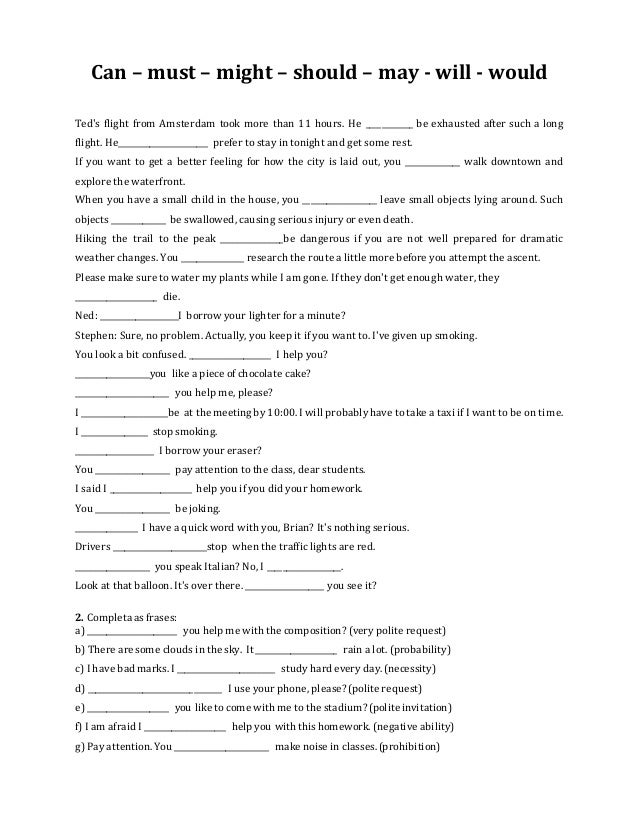
Modal Verbs Exercises
Must have to should exercises pdf with answers
Must have to should exercises pdf with answers-Instructions A) For questions 1 to 5, read each sentence, and select the correct answer from the three options B) For questions 6 to 10, read each alternative, and choose an answer that best fits the meaning of the first sentence Upgrade and get a lot more done!Have a cold show your passport or identity card to get on a plane You have to You mustn't You should 2 Check your grammar error correction – have to, must and should Correct the mistakes and write these sentences on the line below 1 You must to see the Chrysler Building when you're in New York 2 Do I should
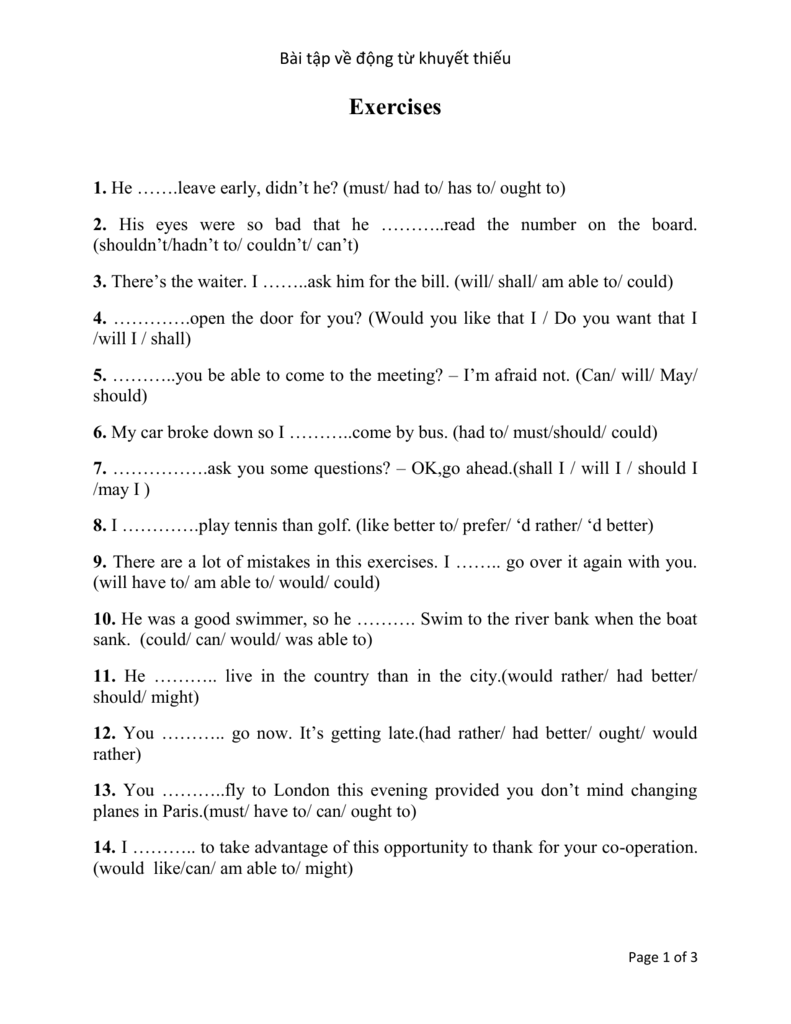



Exercises
Have to, must Quiz You can do this grammar quiz online or print it on paper It tests what you learned on the have to, must page 1 Yesterday I _____ finish my geography project must mustn't had to a) must b) mustn't c) had to 2 She will _____ wait in line like everyone else mustFree English Course Should vs Must Test This should vs must test your understanding of the difference between advice and obligation Do you know when to use each modal?Must vs have to Both Must and have to express obligation or necessity, but there are some small differences • Must expresses the speaker's feelings, whereas have to expresses, above all, an impersonal idea You must come You are obliged to come (I require that you come) You have to come You are obliged to come
Outline Ask students to talk about their daily routines Have them make a list of five things that they have to do every day Introduce the grammar by having the students take a look at the grammar sheet below Discuss the differences between 'have to' and 'must' in the positive form Make sure to point out that 'have to' is used for dailyShould have We use "should have" to give, or ask for, an opinion in the present about something which happened in the past "I had a terrible stomachache" "You should have gone to the doctor's" "I didn't hear from my father last week" "You should have called him" "She isn't happy with the salary she's getting"Should / must / have to 1 Match the sentences Type the letter in the box My brother has hurt his back She should go to bed early You must try that new restaurant in town We must hurry Julia has to get up at 5 am tomorrow But you have to book a table
I' ve got to go to the supermarket must Must is a modal verb and it has a present form, which can be used to talk about the present or the future10 Must vs Have to / Has to Exercises 1 / 2 / 3 11 Must / Mustn't / Needn't / Have to 1213 Modals With Passive Voice 1 / 2 14 Mustn't vs Needn't vs Can't Similar Exercises MODALS V3 Practice Test Ought to (Should) Have / Must Have Needn't Have / Didn't Have To Should Have Done Drag and Drop Exercises Modals Drag and Drop 1 / 2 / 3Ejercicios Should / Must / Have to 1 Elige "Must" / "Should" / "Have to" (en el tiempo correspondiente) para completar estas oraciones {ejerciciocompletar} You come with us to the cinema;




Modal Verbs Verb Worksheets English Grammar Worksheets English Grammar




Should Have Could Have Would Have Exercises Pdf
However, 'have to' is much more flexible than 'must' because we can use it in the past, the present and the future For this reason it is very commonly used in modern English Its structure is the same as any normal verbA friend, same age or rankHave to, must Have to is NOT an auxiliary verb (it uses the verb have as a main verb) We include have to here for convenience Must is a modal auxiliary verb In this lesson we look at have to, must and must not, followed by a quiz to check your understanding have to




Past Modal Verbs Of Deduction Exercise Con Solucion Syntax Grammar



1
Must 'Must' is mostly used to express certainty however as seen above it can also be used for necessity It is also used to express strong obligation Most native speakers prefer 'have to' which is less restrictive in its meaning For prohibition 'Must not' can be used but the meaning is extremely severe and native speakers prefer 'shouldMust or have to worksheets and online exercises Language English Subject English as a Second Language (ESL) Order results Most popular first Newest first Have to vs Must Grade/level English IV by AreliGutierrez Must or Have to Grade/level Intermediate 1 Should, must, have to 2 Should Should infinitive (without to) You should eat more fruit Negative form You shouldn't smoke Question form Should I give her a present?



Www Edu Xunta Gal Espazoabalar Sites Espazoabalar Files Datos Contido Unidade13 Arquivos Actividades Pdf
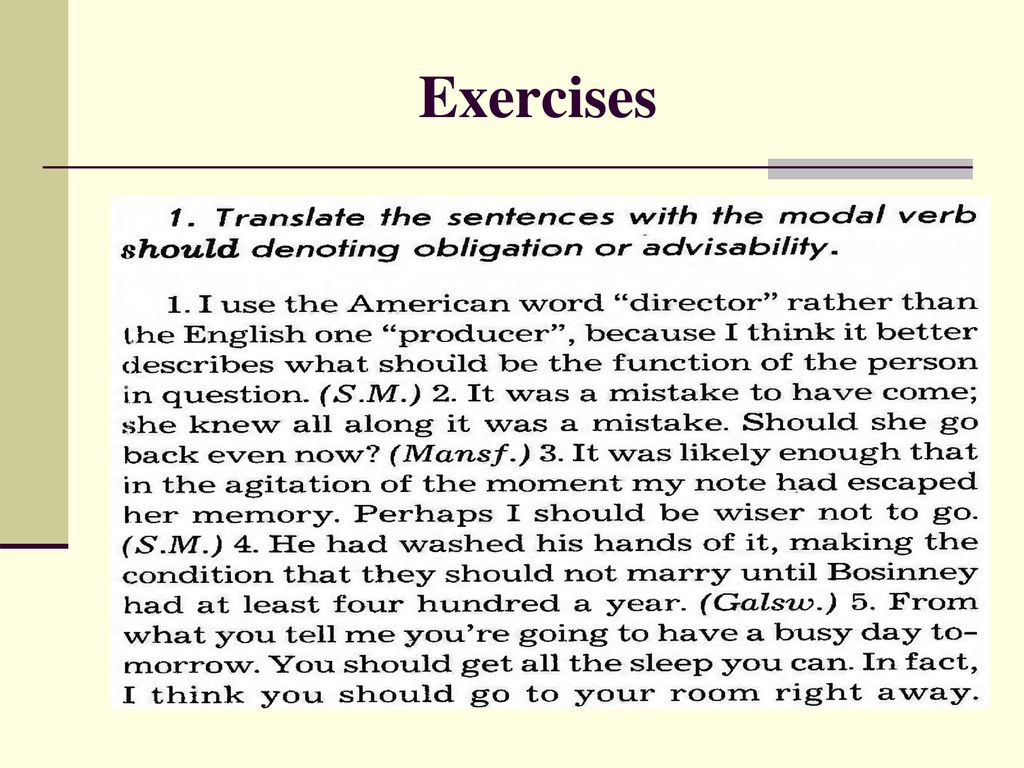



Should Need Must Have To Ppt Download
Should Must Quiz Time limit 0 QuizsummaryThis is our third lesson on English Modal Verbs In This English lesson, we will be looking at the differences between 'should', 'must' and 'have to'Join myMust, Should or Have to ESL worksheet by Baby V I usually use this activity to consolidate modals Saved by romina aroca 74 Teaching Grammar Grammar Lessons English Grammar Worksheets English Vocabulary English Lessons Learn English Bibliography Template Kindergarten Classroom Classroom Ideas
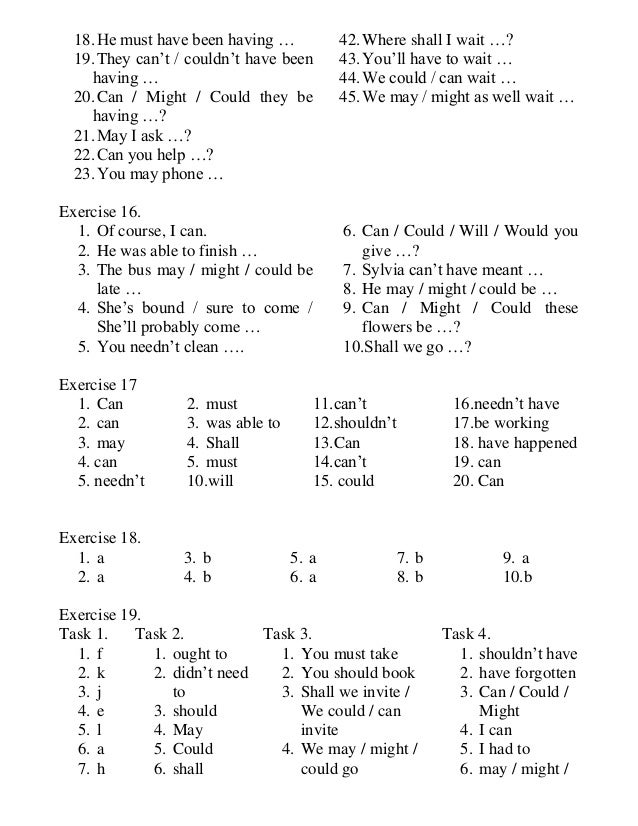



9 Modal Verbs In Modern English Theory And Exercises




Must Should Worksheets And Online Exercises
Must* changes to 'had to'should have pp / shouldn't have pp a past action which didn't happen the advice / regret is too late You should have gone to bed earlier, now you have missed the train a past action which didn't happen the advice / regret is too late You shouldn't have taken that job, it was a bad idea"escape" wording peer – equal level of formality (informality); Have To, Don't Have To, Needn't, Must or Mustn't Test A1 Level Exercises Possibility, Request and Permission May, Might, Can, Could Test A1 Level Exercises




Grammar Must Have To Should Worksheet




Have To Or Must Easy Grammar Quiz And Infographic World English Blog
Los verbos modales "can't have" / "must have" / "might have" Verb conjugation practice Contenido de suscripción Los verbos modales must, have to, should, should have Modals must, have to, should, should have passive Dictation exercises focus onHave to / has to Must not do not have to Must / can quiz Must / mustn't exercises 1 Must / mustn't exercises 2 I have to walk the dog Permission obligation prohibition Don't have to / doesn't have to Modals of necessity must / have to2) I (must, have to) get my hair cut before the dance 3) She (has to, must) pay monthly rent to live in her apartment 4) Ted's dad said that he (must, has to) clean his room before he can play 5) I (have to, must) buy those pretty red shoes 6) The runner (has to, must) win the race to get a




Test English Prepare For Your English Exam




How To Teach May Might Could Must Off2class
Exercises modal verbs Must not do not have to Must / have to / should Modal verbs must and mustn't Necessity must / have got to Obligation, necessity and permission 1 Obligation, necessity and permission 2 Obligation, necessity and permission 3 Mustn't or needn't exercisesStudents can practice modals Must, Have to & Should English Exercises > modals exercises Must, Have to, Should Downloadable worksheets Vitamin N Level advanced Age 1516 Downloads 15 MODAL VERBS 3 (KEY included) Level elementary Age 1217 Downloads 16 MUST, HAVE TO and SHOULD PART 2The film we are going to see




Have To Must And Should For Obligation And Advice Learnenglish Teens British Council
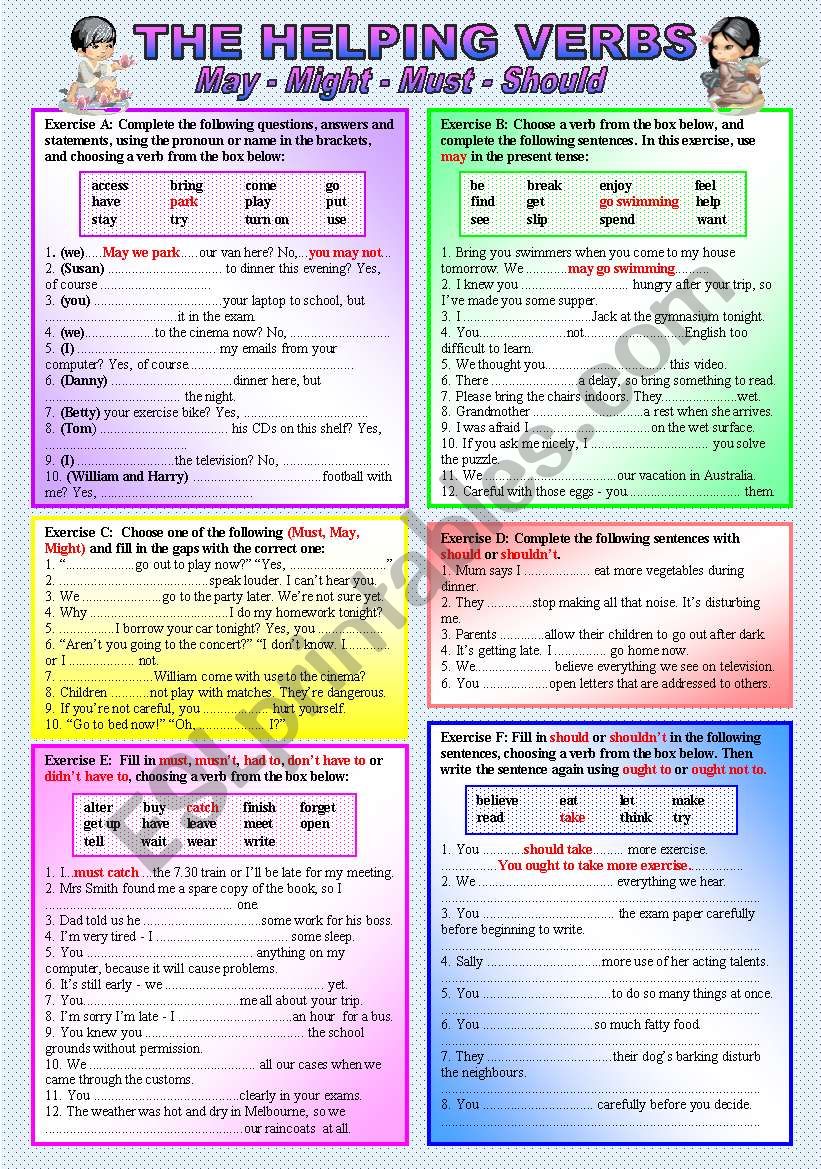



Helping Verbs Modals May Might Must Should 6 Exercises 58 Exercises To Complete Elementary Intermediate B W Version Included Esl Worksheet By Ranclaude
Choose the correct option to complete the sentences below 1 When we were at school we must had to ought to wear a uniform 2 You don't have to ought not to mustn't be an expert to use the basic functions of program 3 You should 've got mustHAVE TO, MUST & SHOULD are modal verbs which we use for obligation and recommendations Use SHOULD to make a recommendation (ie when you think it is a good idea for someone to do something) Example You should do some grammar exercises to improve your English 2() Grammar Must, Have to, Should Select the correct modal verb of obligation or prohibition




Modal Verbs Exercises




Gs Must Have To Should Exercises 2
(asking for advice) Verb tenses past, present, future I should have finished my report yesterday (past – always REGRETTING) You should help me, I can not do it alone English Grammar Use Of Must/Have To/Should Trivia Quiz!Have to, don't have to, must, mustn't (1) Type the correct answer into the box Use contractions where possible Youhave a passport if you want to travel abroad Youarrive late Youstand on the plane There are seats for everyone
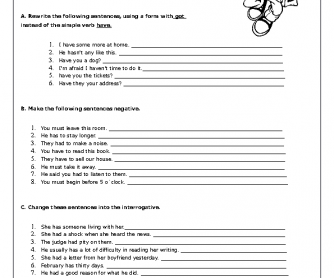



81 Free Must Worksheets




The Difference Between Must Have To Shall Need And May
Start studying Must/mustn't, should/shouldn't, have to (EXERCISE) Learn vocabulary, terms, and more with flashcards, games, and other study tools MUST Similar to have to – strong obligation You must abide by the law You mustn't smoke indoors, it is illegal You must arrive on time;01 Must should mustn't shouldn't rules 02 must exercises English exercises 03 must word order examples 04 must exercises exercisesmust 05 must modal verbsexamples Should exercises 06 should modal verbs exercise 07 should modal auxiliaries word order 08 should modal auxiliaries word order 09 should modal auxiliaries word order 10 mustn´t or shouldn´t exercise Must or should exercises with answers Must or should
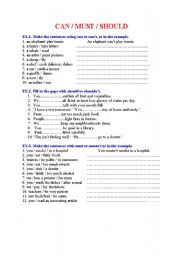



Can Should Must Exercises On Modal Verbs Esl Worksheet By Ania Z




Modal Verbs Should Ought To Have To Y Must
In this lesson, you can learn about the modal verbs must, have to and shouldDo you know the difference between 'must', 'have to' and 'should'?You can find out below Good luck!Objective At the end of this topic you will Use the modal verbs, should and ought to to express advice and suggestion in formal way, and have to and must to express obligation, compromise or need in affirmative, negative or interrogative forms, through different customary contexts to exchange personal information




Modals Can Can T Have To Don T Have To Must Mustn T Should Shouldn T Key Included 3 Pages 7 Exercise Can Can T Grammar Worksheets English Grammar Worksheets




Modal Verbs English Study Here
Should , must, have to Read the following situations and fill in one of the following verb forms , should, shouldn't, should have, shouldn't have , don't have to, doesn't have to, must, mustn't, must haveMust cannot be weakened direct – stating exactly what you want or think;FREE Must Worksheets Welcome to the must subsection of modal verbs where you can find 81 Must worksheets to help your students learn the proper uses of this word Here are two examples of worksheets from this section that you might want to use in class The first worksheet has students practice forming positive and negative sentences with must
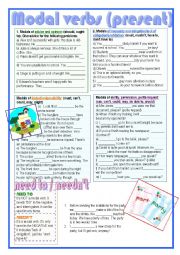



English Exercises Obligation Should Must Have To
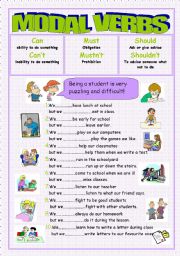



English Exercises Modals Should Shouldn T Mustn T
Learn English > English lessons and exercises > English test # Should/ have to/ must > Other English exercises on the same topic Modals Change theme > Similar tests Modal may/might Placement test 1 Modal can (video) Modal verb must / have to Modal can/could Must / Have to Modal verbs Modal verbs Uses of should, must and have to Should In the present tense, 'should' can be used in order to signify a milder form of obligation and/or advice The negative version is made by placing a 'not' after the word 'should not', indicating aMust or should exercises Must or should rules and examples Must mustn't Must infinitive = it is necessary to do something For past tenses use had to positive must I must stop the car They must stop the car negative mustn't




Gs Must Have To Should Exercises 2
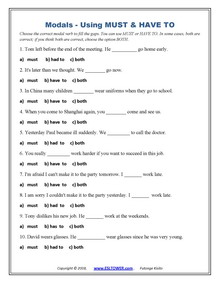



Modals Exercises And Worksheets
You must have been tired after driving for so long Both modal verbs can be used when talking about obligation "Have to' is more common, especially in North America, but in the UK there is a subtle difference 'must' is used for internal obligation and 'have to' is used for external obligationOtherwise, we will leave without you SHOULD Similar to ought to – a suggestionHow to Use MUST and SHOULD, Example Sentences Table of Contents Using MUST in EnglishUsing SHOULD in English Using MUST in English We use must to Express a stronger point of view "We need to " "We have to" The modal must also expresses opinion, one person's point of view Examples We must fasten our seatbelts You must stop playing computer games



Q Tbn And9gcqre S57keb7xjdfux7 Vb8b4trxvyaz4jn Wgdmevbm1efsywu Usqp Cau




Exercises
We should have worn big shoes I must let the cat get tired We have to find our way home in the dark I have to work on Sunday You must smoke in this corridorWe must complete all of our studying before the big exam We have to go to school on Saturday to collect our exam results Dinosaurs had to spend most of the say in the sunlightThe exam is at 8 have got to In spoken informal English, you can often use 've got to instead of have to I can't stay;Should or Must A modal is an auxiliary (helping) verb that expresses ability, possibility, permission or necessity English modals include must, shall, will, should, can, could, would, may and might In this lesson, we shall be discussing SHOULD and MUST SHOULD and MUST express necessity
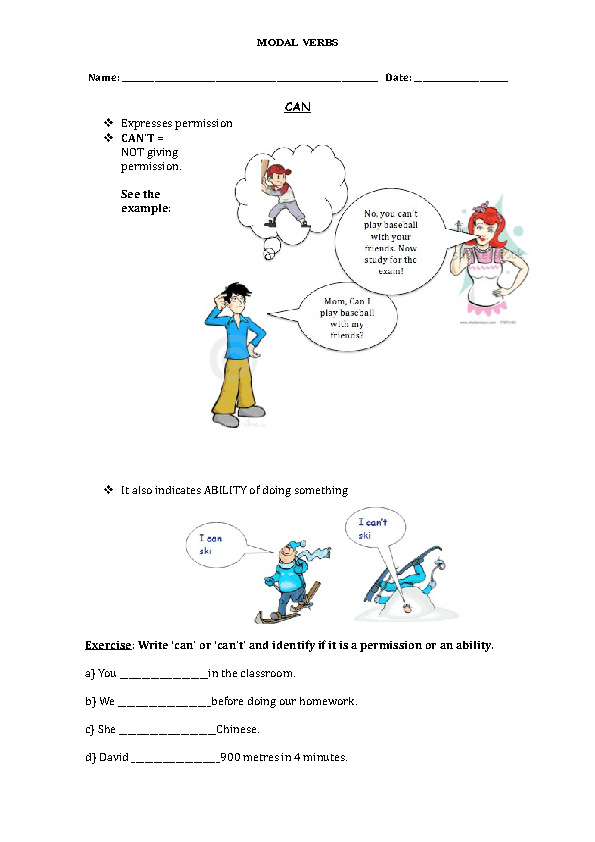



Modal Verbs
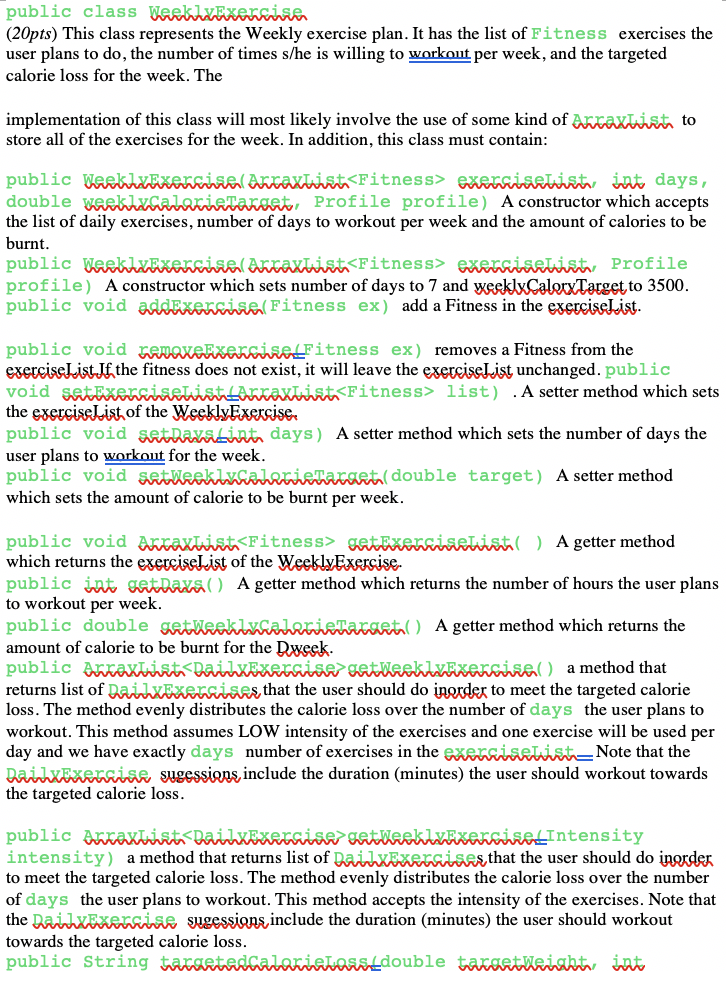



Overview 1 Implement The Basics Of Fitness And Chegg Com
Modal auxiliaries generally express speakers attitudes Modals can express whether a speaker feels something is necessary (must, need to, have to) advisable (should, ought to, had better) permissible (may, can, could, might, would you mind) possible (may, might, could) And a modal can express the strength of the attitude They must find a solution to the problem He must find a job Should, ought and must Should and ought have very similar meanings and can often replace each other Note that ought is followed by the infinitive with to You should tell the truth OR You ought to tell the truth He should be punctual OR He ought to be punctual He should stop NOTE "have to" is conjugated as a regular verb and therefore requires an auxiliary verb in the question form or negative We have to get up early She had to work hard yesterday They will have to arrive early Does he have to go?




81 Free Must Worksheets
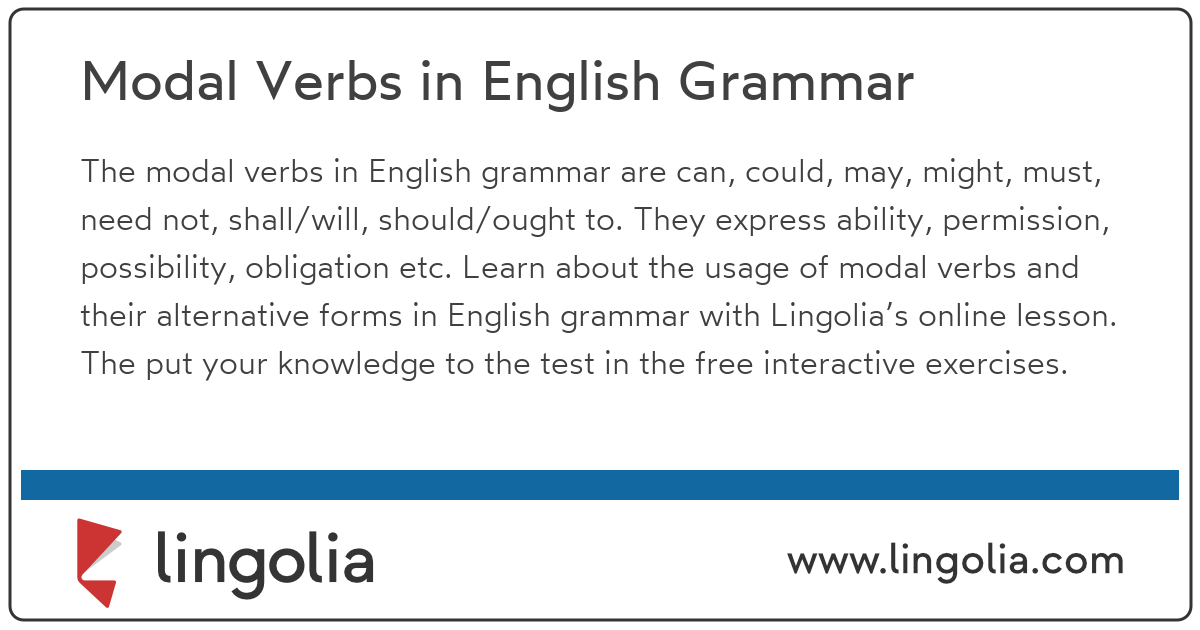



Modal Verbs In English Grammar
10 Must vs Have to / Has to Exercises 1 / 2 / 3 11 Must / Mustn't / Needn't / Have to 1213 Modals With Passive Voice 1 / 2 14 Mustn't vs Needn't vs Can't Similar Exercises MODALS V3 Practice Test Ought to (Should) Have / Must Have Needn't Have / Didn't Have To Should Have Done Drag and Drop Exercises Modals Drag and Drop 1 / 2 / 3 Other Drag & Drop Grammar Exercises Multiple Choice Exercises




Must And Have To Modal Verbs Exercises




Must Have To Had To Exercises Exercise Poster
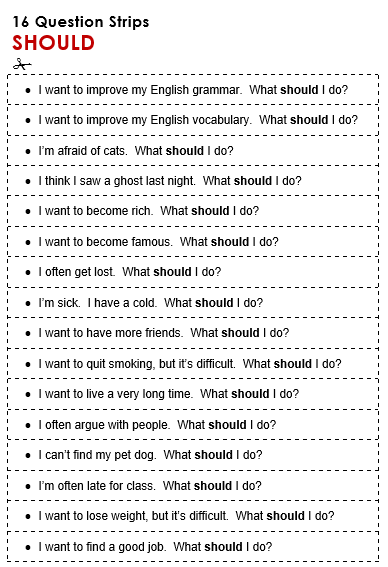



Should All Things Grammar




Modals3
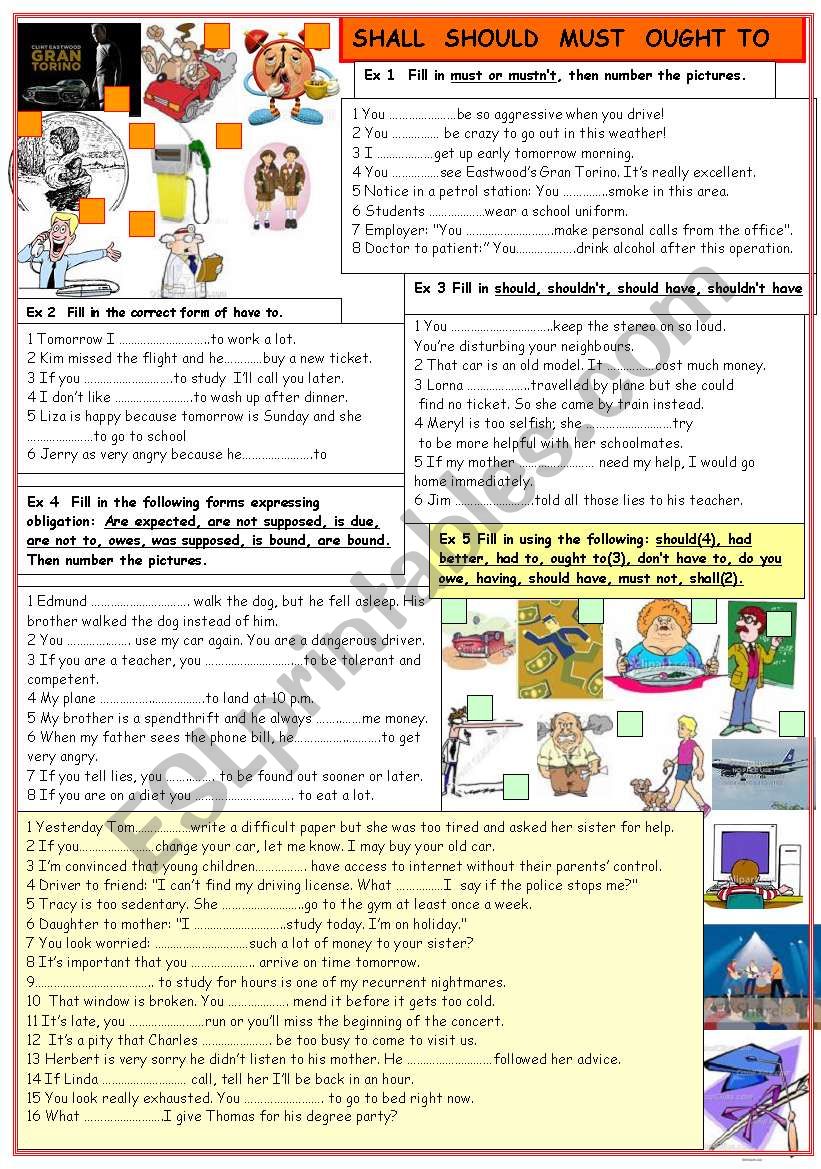



Shall Should Ought To Must Esl Worksheet By Lilianarota




English Worksheet Must Should Or Have To English Grammar Worksheets Grammar Worksheets English Grammar



May Must Can Could Should Random Wheel




Test English Prepare For Your English Exam



Fadeibuoni Files Wordpress Com 17 03 Musthaveto2 Pdf




11 Should And Must In Exercises In Form 1 Textbook Download Scientific Diagram




Perfect Modals And Simple Modals Exercises By English With Simo Youtube
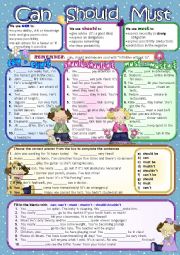



Can Should Must Greyscale Answer Key Included Esl Worksheet By Mariamit




Should Must



English Worksheets Must Have To Worksheets




Must And Have To Exercises




Should Must Teaching English Grammar Learn English English Language Teaching
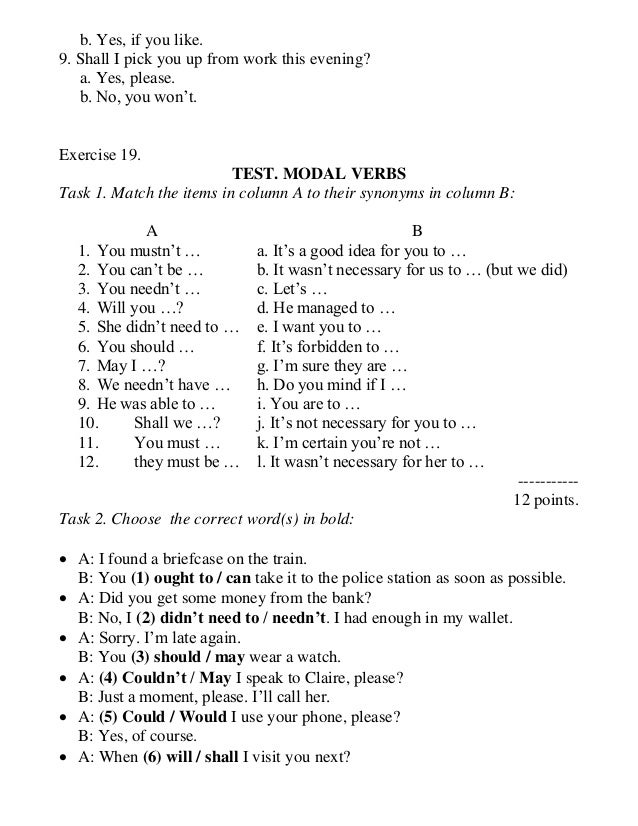



9 Modal Verbs In Modern English Theory And Exercises




English Worksheets Should Shouldn T Must Mustn T Have To Don T Have To Grammar Worksheets Ielts Writing Worksheets




Grammar Exercise May Have Might Have Could Have Must Have Should Have Would Have Youtube




Test English Prepare For Your English Exam




Modal Verbs Must Have To Should English Esl Worksheets For Distance Learning And Physical Classrooms
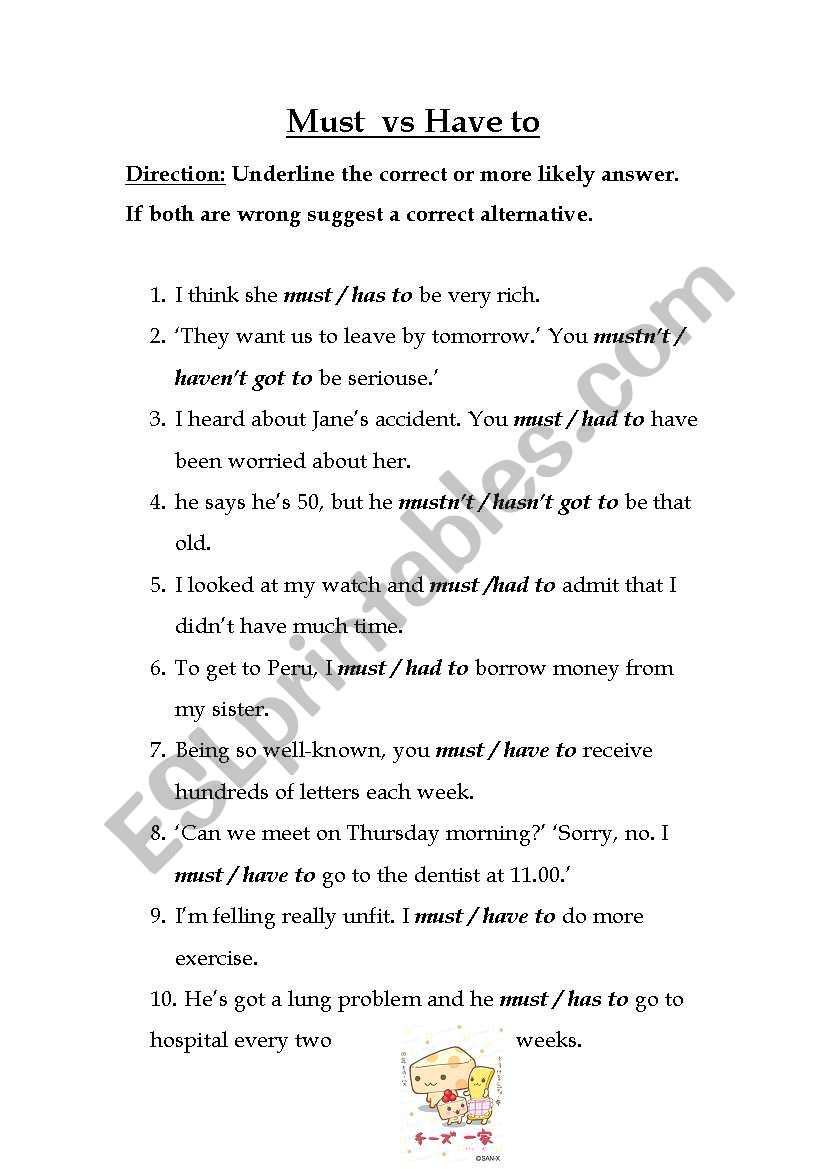



Exercise For Modals Must Vs Have To Esl Worksheet By Bambienoo




Should Must And Have To English Esl Worksheets For Distance Learning And Physical Classrooms




Exercise Grammar Unit 7 Modal Verbs
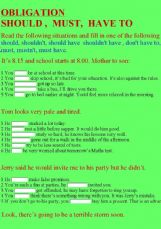



Esl English Exercises Obligation Should Must Have To




Should Must English Esl Worksheets For Distance Learning And Physical Classrooms




Modal Verbs Must Should Have To Worksheet




6th Rybg Kids Modals Have To Has To Must Mustn T Should Shouldn T Need To




Must Mustn T Can Have Don T Have To English Esl Worksheets For Distance Learning And Physical Classrooms



Www Edu Xunta Gal Espazoabalar Sites Espazoabalar Files Datos Contido Unidade13 Arquivos Actividades Pdf




Modals Exercise For 2º Bachillerato
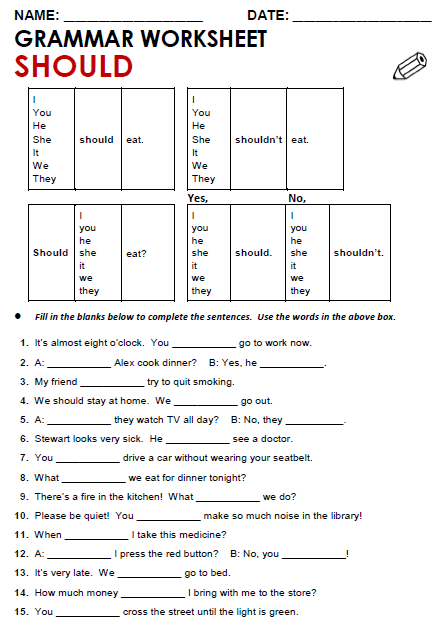



Should All Things Grammar
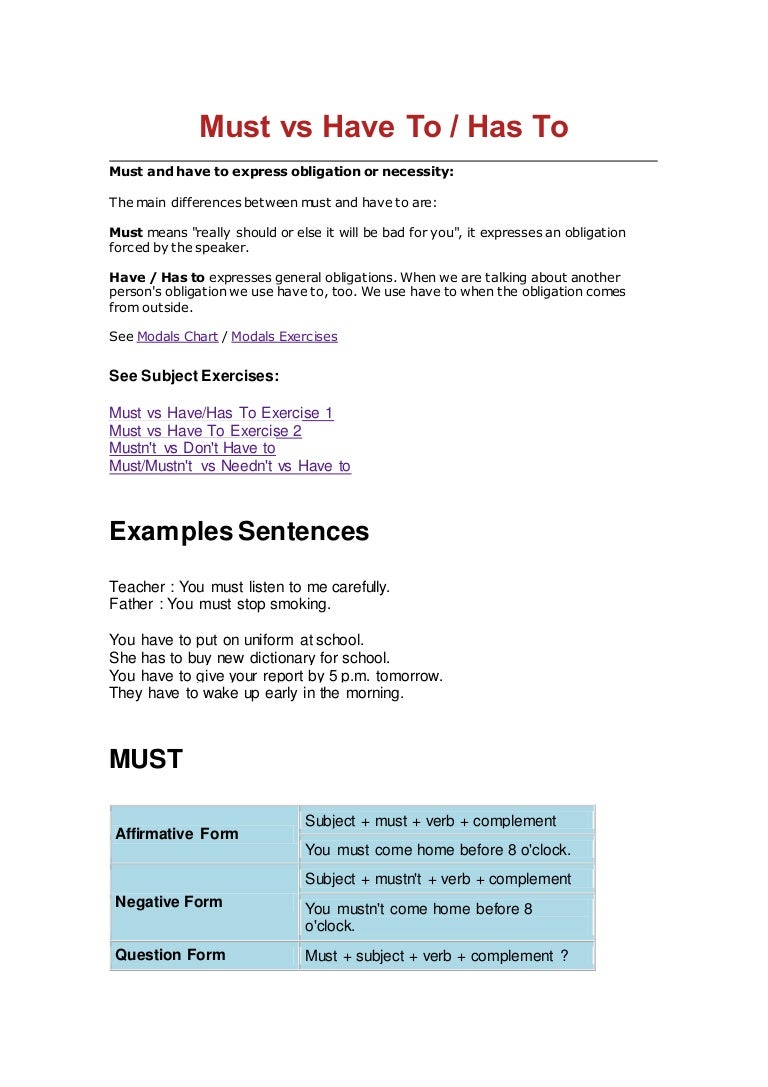



Must Vs Have To Grammar



1
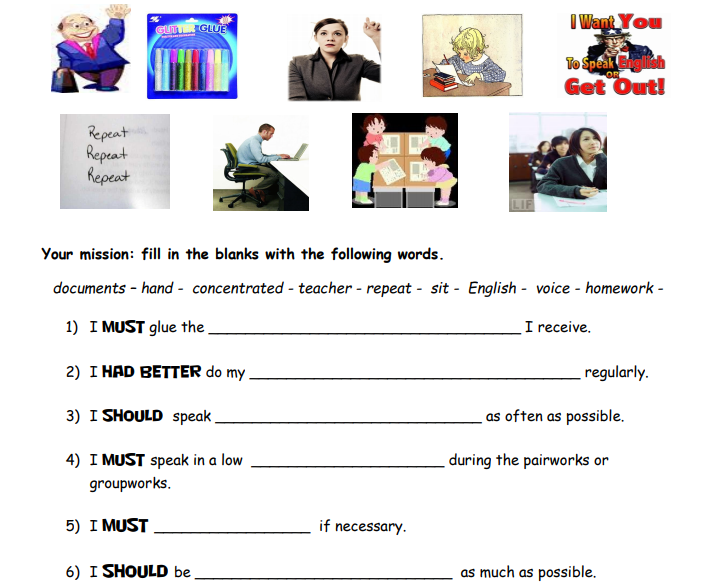



81 Free Must Worksheets




Modals Interactive Exercise For 9th Grade




Modal Verbs List Examples Pdf




English Esl Must Or Have To Obligation Worksheets Most Downloaded 133 Results
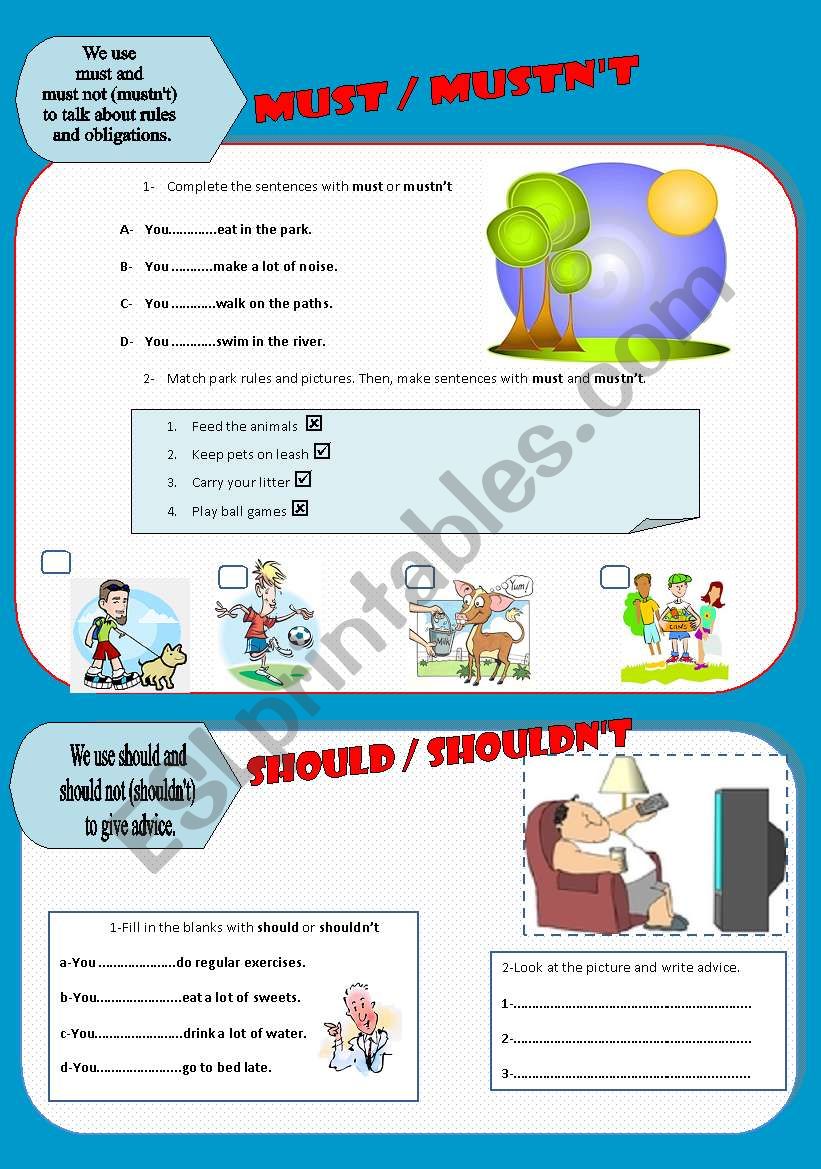



Must Vs Should Esl Worksheet By Brisanaty




Modal Verbs Must Should Have To Worksheet




Modal Verbs Must Mustn T Should Shouldn T Don T Have To Worksheet




Modal Verbs Must Should Have To English Esl Worksheets For Distance Learning And Physical Classrooms




Should Must And Have To Conversation Topics Dialogs Fun Activities Games G
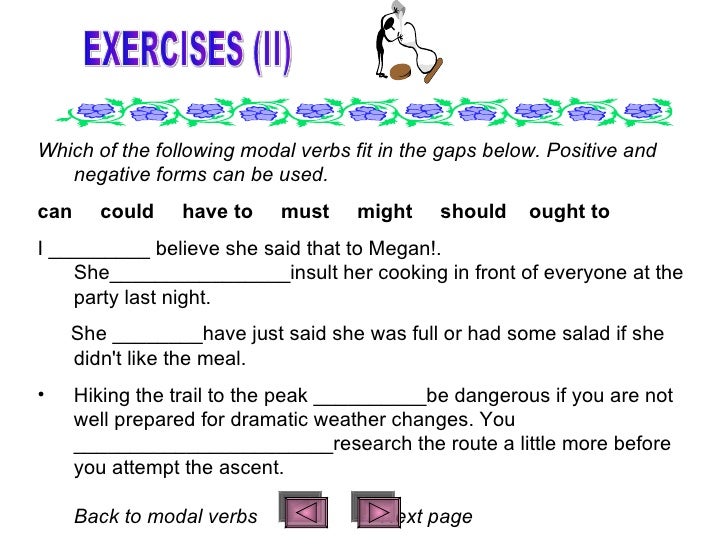



Modal Verbs Iii




Test English Prepare For Your English Exam
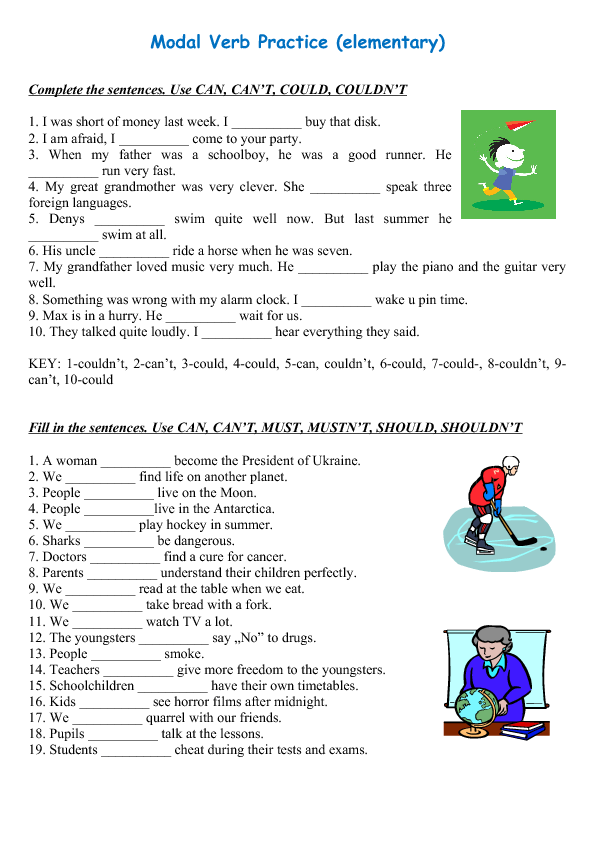



81 Free Must Worksheets




Can Must Should English Esl Worksheets For Distance Learning And Physical Classrooms
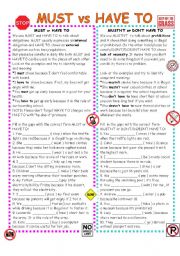



English Exercises Must Or Mustn T




Teach Should And Ought To Advisability Modals Off2class
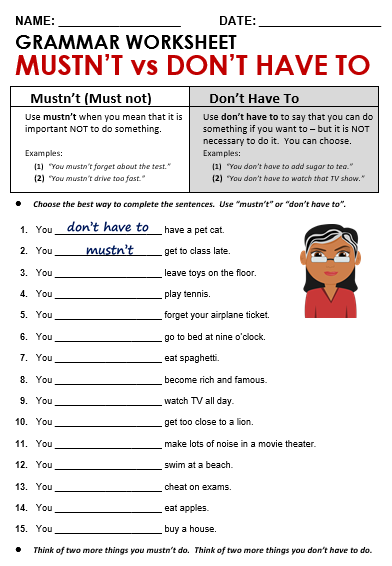



Must Necessity All Things Grammar




Modals Should Must Have To Worksheet




Must Have To And Should English Esl Powerpoints For Distance Learning And Physical Classrooms




Test English Prepare For Your English Exam




36 Best Modal Verbs Ideas Anglictina Gramatika Anglicka Gramatika




Must Mustn T Can Can T Could Couldn T Should Or Shoul T Worksheet
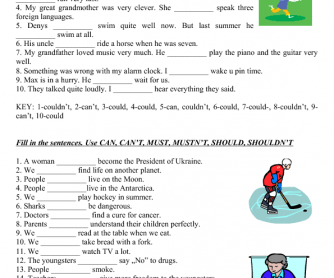



Must Have To Exercises




English Esl Must Or Have To Obligation Worksheets Most Downloaded 133 Results
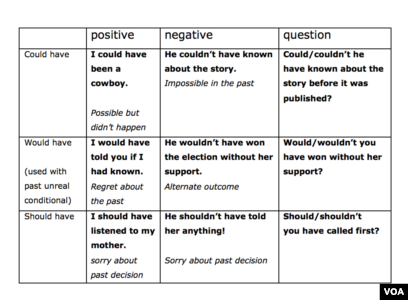



Could Have Would Have And Should Have



1
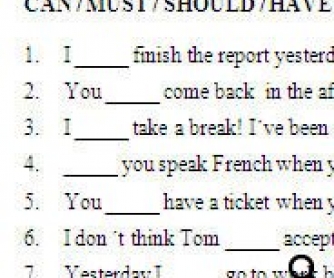



Modals Test




How To Teach May Might Could Must Off2class




How To Teach May Might Could Must Off2class
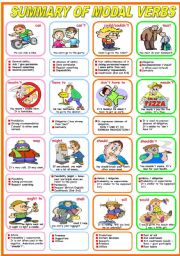



English Exercises Should Ought To Had Better Expressing Advice Author Bouabdellah




Modals Exercises For Class 7 With Answers




Modal Verbs English Page
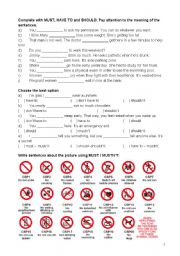



English Exercises Must Have To Should




M O D A L S K I P L E R Should Must Have To Need Mustn T Needn T May Might Ppt Download




Sleam Upper Intermediate Grammar Exercises By Jjonestemp Issuu




Modal Verbs Speculation Exerciseschoose The Correct Phrase To Complete Each Sentenceought To Have Brainly In




The Difference Between Must Have To Shall Need And May
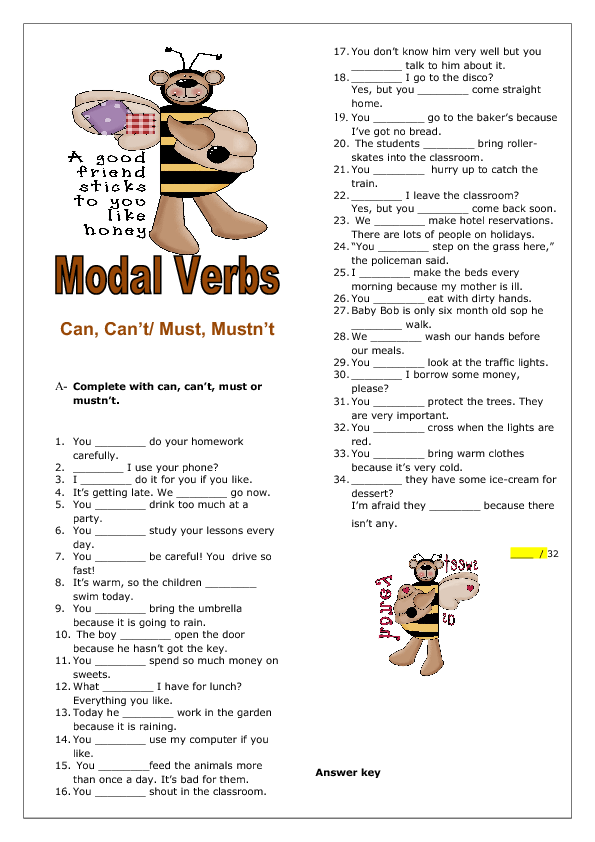



Can Can T Must Mustn T Elementary Worksheet



In Plain English Should Must Or Have To



0 件のコメント:
コメントを投稿